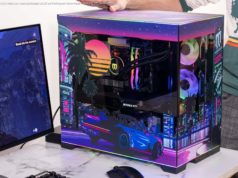When the first true quantum computer is one day realised, it will be completely useless. For it to prove its worth as a potentially world-changing problem solver, it will need to run software.
When the first true quantum computer is one day realised, it will be completely useless. For it to prove its worth as a potentially world-changing problem solver, the more than likely shed-sized, super-cooled and multi-million dollar piece of kit will need to run software.
While the majority of current research (including that at the CQC2T at UNSW ) is focused on the within-reach reality of a fully functional universal gate quantum computer, a small group of researchers at University of Technology Sydney are exploring exactly how we’ll tap into this future machine’s incredible computational power.
In coming months they will reveal their latest breakthrough: a programming environment for the quantum era.
„So when the day comes the hardware is ready,“ says Professor Runyao Duan — director of the newly formed UTS Centre for Quantum Software and Information (UTS:QSI) — „we’ll be ready“.
Classical gas
Programs designed for so-called classical computers – the kind that use binary bits, like the one you’re reading this article on – are not well suited to quantum computers.
The superposition of quantum states – which in qubit (quantum bit) form manifests as a 0, 1 or both – means a quantum computer can run two computations simultaneously, rather than sequentially. Not designed for this radically different underlying hardware, a classical program would simply fail to exploit this quantum capability.
So quantum programs are needed. But building them is hard.
„Due to the weird nature of quantum systems, many technologies that have been very successful in traditional programming will be broken,“ explains Professor Minsheng Ying, research director at UTS: QSI.
„Essential differences means we need new technologies,” he says. “It’s like starting afresh,“
Speaking another language
Although quantum programming languages have been in development since the late ’90s, these were often ‚quantum extensions‘ to existing languages; C++ for example.






